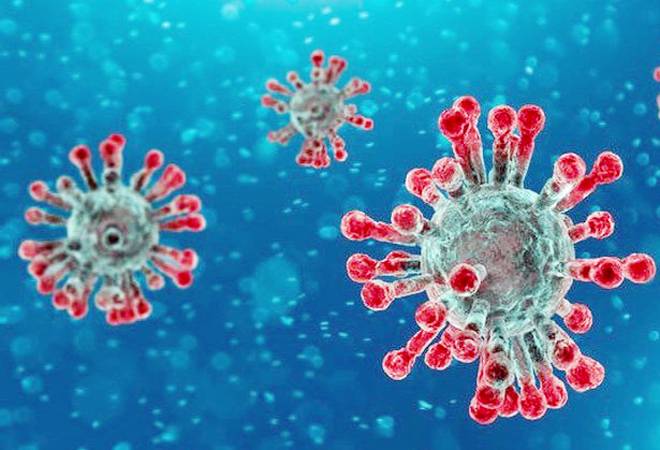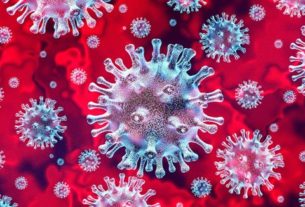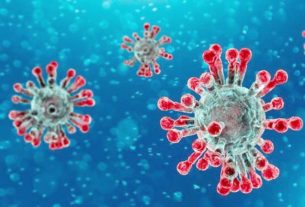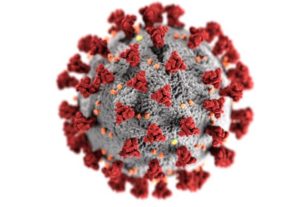From Our Bureau
19TH AUGUST 2020
India witnessed a big surge with 64,531 fresh COVID-19 positive cases reported on Wednesday, taking the country’s cumulative tally to 27,67,273. The death toll rose to 52,889, with 1,092 fatalities recorded in the last 24 hours.
Fast on the heels of crossing 3 crore cumulative tests, India has recorded another high. Total number of recoveries has crossed 2 million today (20,37,870).
Coupled with this is another achievement of highest ever single day recoveries of 60,091 in the last 24 hours. With this high number of COVID-19 patients recovering and being discharged from the hospitals and home isolation (in case of mild and moderate cases), the Recovery Rate has crossed 73.64 percent. This has also led to the declining Case Fatality Rate, which stands at a new low of 1.91 percent today.
The record high recoveries have ensured that the actual caseload of the country, namely, the active cases has reduced and currently comprises less than 1/4th (only 24.45 percent) of the total positive cases. Higher number of recoveries and declining fatality has shown that India’s graded strategy has worked. India has posted 13,61,356 more recoveries than the active cases, numbering 6,76,514.
From the beginning of January 2020, Government of India assiduously followed a graded, pre-emptive and proactive response and management strategy for COVID-19 in the country. The focused, collaborative and ‘whole of government’ approach has yielded success.
Building on the continuum of care approach, the policy of TESTING aggressively, TRACKING comprehensively and TREATING efficiently is led by the Central Government and implemented in conjunction with the State/Union Territory governments. Focused attention on effective surveillance and house-to-house contact tracing has led to early detection and identification of COVID-19 cases.
The mild and moderate cases are treated under supervised home isolation. As per the standardized clinical management protocol based on the holistic Standard of Care approach, the critical and severe patients are hospitalised and provided the best medical care.
Government of India, along with efforts of the State/UT governments, has ramped up the hospital care infrastructure across the country to ensure that medical care for different categories of positive cases is provided through the Dedicated COVID Care Centres (DCCCs), Dedicated COVID Health Centres (DCHCs) and Dedicated COVID Hospitals (DCHs). Their numbers have substantially increased too.
Today, there are 1,667 DCHs, 3455 DCHCs and 11,597 DCCCs. Cumulatively, they provide 15,45,206 isolation beds, 2,03,959 Oxygen supported beds and 53,040 ICU beds.
The seamless and point–to-point medical management of the COVID-19 patients has been made possible through effective ambulance services with zero tolerance on refusal of care and service, and measures such as use of non-invasive oxygen combined with use of investigational therapies. All India Institute of Medical Sciences (AIIMS), New Delhi, through its tele-consultation sessions, has helped to build the clinical capacities of doctors in the States/ UTs.
Through this unique initiative, specialist doctors from AIIMS, New Delhi, provide expert guidance and knowledge support to doctors manning ICUs in the State hospitals aimed to reducing the case fatality.
Integral to these efforts has been the remarkable contribution of the ASHAs (Accredited Social Health Activists) in the States/UTs. Being part of the Active Case Search teams, they have strengthened the surveillance and contact tracing, and supervised the patients in home isolation.
They have played a key role in ensuring critical patients reach to the hospitals for timely treatment. They have also supported the communities through awareness regarding the measures for prevention and control of COVID-19, and helped the needy to access healthcare services.
Keeping the focus on “TEST, TRACK AND TREAT” strategy, India has tested more than 8 lakh COVID-19 samples for the 2nd consecutive day in a row. With a strong resolve to rapidly increase the number of tests done per day to touch 10 lakh/day testing capacity, 8,01,518 samples were tested in the last 24 hours.
The cumulative testing as on date has reached 3,17,42,782. The Tests Per Million Population too have seen a sharp rise to 23,002.
It is only by aggressive testing that positive cases can be identified, their contacts tracked and isolated as well as prompt treatment can be ensured through timely medical care. The sustained level of high testing has played a key role in India’s increasing rate of recovery, widening gap between the recovered and active cases, and also progressively declining fatality rate.
India followed the track of a graded and evolving strategy, steadily strengthening its nationwide network of labs in the public and private sectors. Starting from one lab in January 2020, today 1,486 labs dot the country– 975 labs in the government sector and 511 in the private sector. These include: Real-Time RT PCR based testing labs: 762 (Govt: 452 + Private: 310), TrueNat based testing labs: 607 (Govt: 489 + Private: 118) and CBNAAT based testing labs: 117 (Govt: 34 + Private: 83). (eom)



